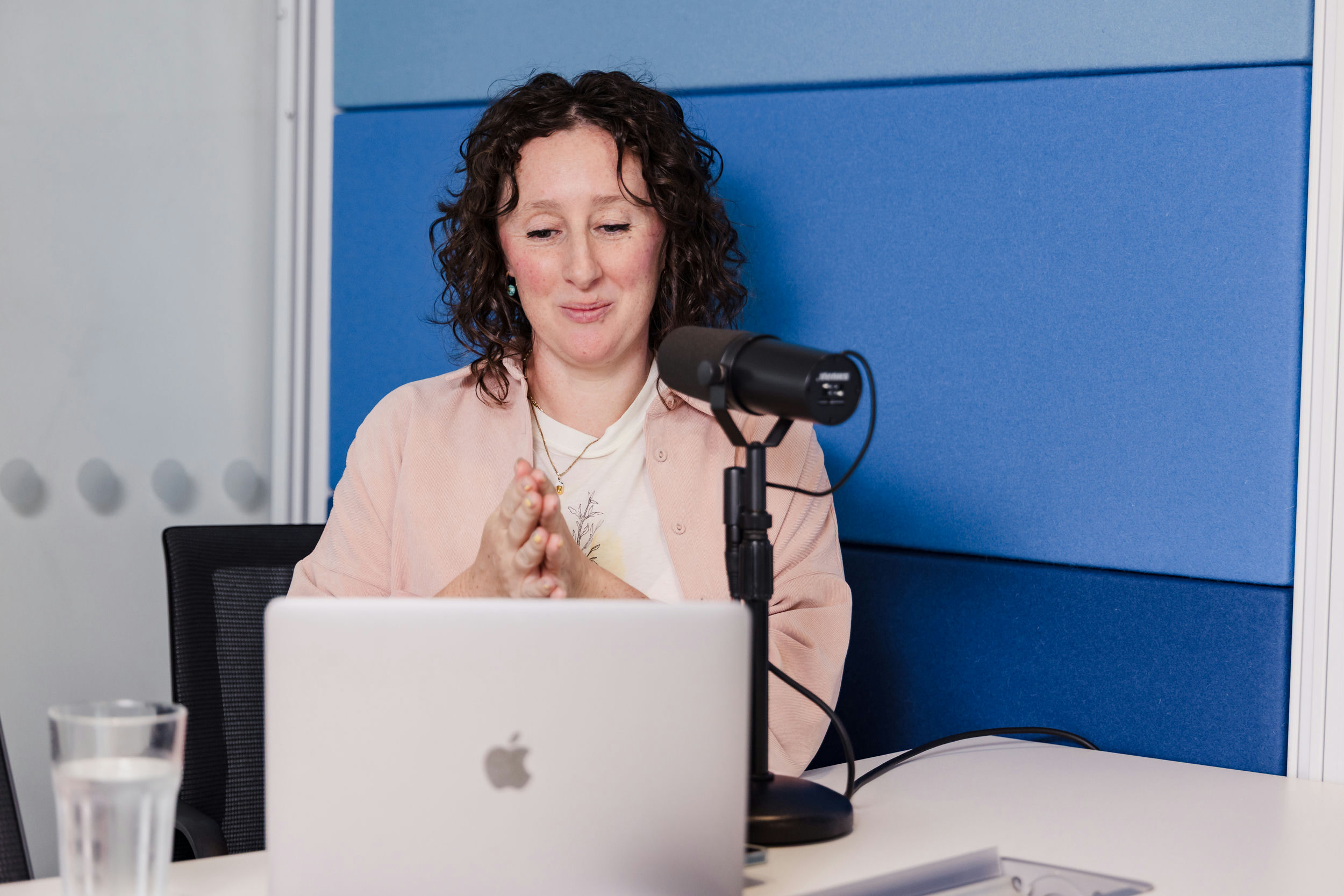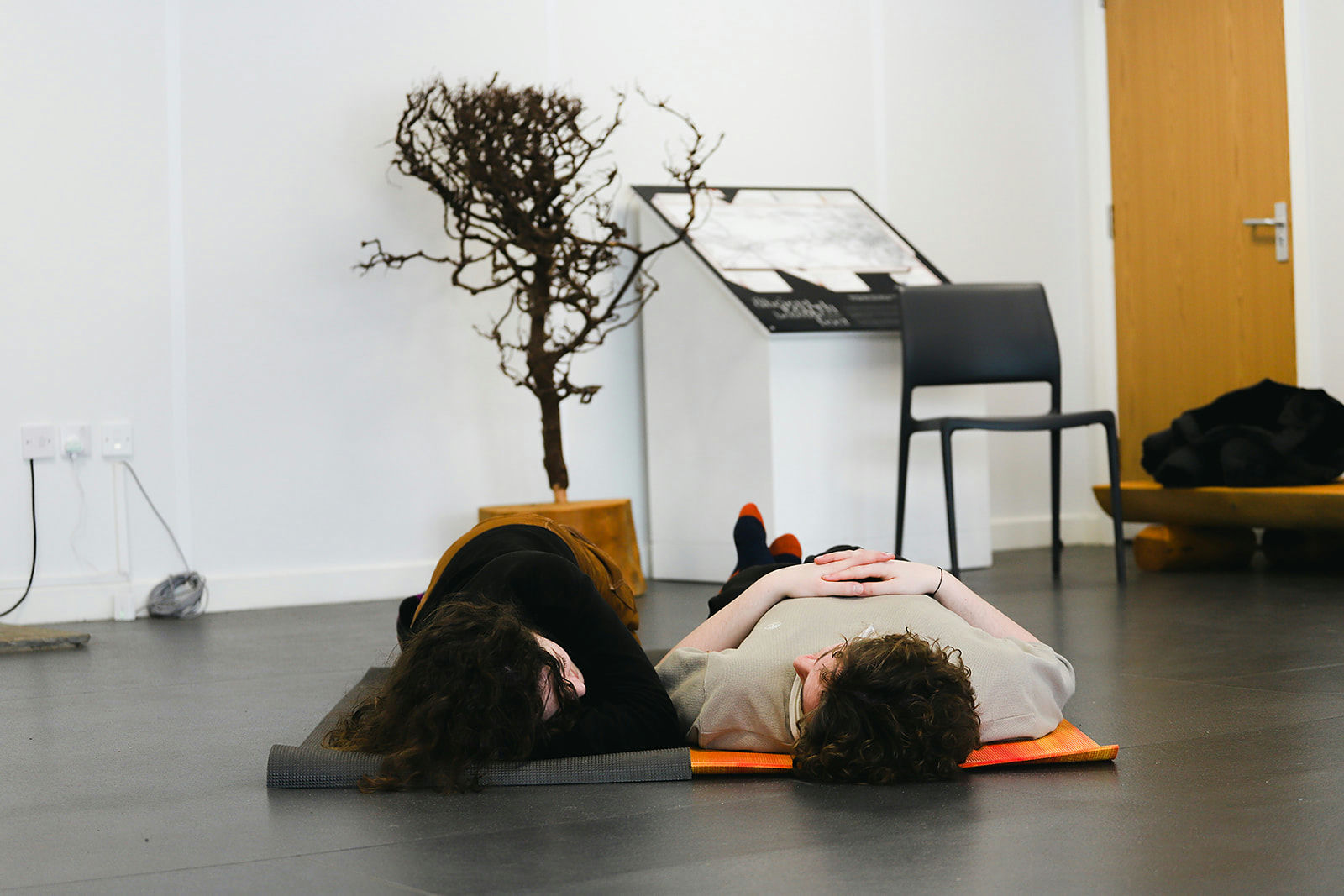Ah yes, it’s the age-old question: how to reduce umms, ahhs and filler words. Imma stop you there friend. People are obsessed with the idea they need to reduce thinking sounds when they’re speaking in public or recording a podcast.
It’s a very common hang-up. But I’m here to put your mind at rest and offer a few wee things to explore.
Spoiler alert, this isn’t a piece on how to remove all umms, ahhs and filler words when you are speaking. Oh no, we’re not doing that censoring on my watch. Let’s crack on.
Firstly, let’s address why you may put those filler noises into your speech… Simply put, they’re thinking sounds. They happen your our brain is looking for or locating the next thought – the next thing you want to communicate.
Aside from when you’re reading a script, you will have to think at some point when you speak. A lot of the time you don’t even know you’re doing it. So I want to offer this as a first idea.. You don’t need to remove all filler words. Not all ‘umms’ and ‘ahhs’ and filler words are bad. Listeners are used to hearing hesitation sounds and filler words and, shock and horror, it’s still possible to understand what people are saying and enjoy listening.
Next, let’s talk mindset. There’s a lot of power when working on your speaking in just reframing how you view them in the first place. Humans habitually have a negativity bias seeing the bad bits first. If you can approach what you’re working on more inquisitively with a slightly more positive outlook then it allows us a freer approach to improvement. For example, have you ever thought about how your filler words might be accent-related? If this is the case, like, maybe, like they aren’t as much of a problem, like? They’re a part of who you are. Like, as expertly demonstrated there, is a Northern Irish dialect feature. So to remove all the likes from my speaking would be inauthentic.
How about filler words, ums and ahs in the wild?! In proper, real-life conversations between people, they are your way of letting the listener know you’re not finished. There’s a deep-rooted fear with us humans that if you leave silence someone will jump into and crack on with their point – rude but it happens (a lot with women but I have seen it in men too) In reality, most public speaking situations are situations where the speaker has the floor i.e no one is going to interrupt anyway. This is good to remember. No one is going to interrupt if you’re on stage or speaking at a conference or even if you are recording a solo podcast. So you don’t need those filler words or to fill those thinking moments – you can just pause.
This leads me to my first tip. Use the pause. Pauses are your best friend as a speaker. They can tease the listener, they can startle the listener, they can give the listener the necessary time to process a powerful statement. Or, they can just be for you to breathe and take a hot minute. To break the habit and reduce thinking sounds, put something else in its place – replace it with another habit. You can fill that huge gaping pause that feels terrifying cos everyone is looking at you… with a breath.
Next time you notice the urge to make a filler sound, replace it with a lovely outbreath. Release the tummy, let that breath come in nice and low to fill you up. Use the pause with no speaking to breathe out. The instinct when you’re thinking is to hold your breath. If you let your breath out, you’ll have the impulse to breathe in again. And what’s the in-breath? It’s the fuel for the thought you’ve been searching for. Breathing connects to the impulse to speak. Breathing in, aka inspiration, is where the INSPIRATION (hello!) to talk comes from. Isn’t language fab?! So use the pause, fill it with an out breath, let your thoughts collect on the in breath and let your speech flow – happy days.
Let’s quickly mention here the power of the body in all this. When you have physical freedom and stability in the body and efficient alignment (Episode 8 of my podcast) then your breath flows more easily ergo your thoughts come more easily. So check in on your body position when you speak. Stand with your feet beneath your hips, your weight evenly distributed between your heels and the balls of your feet, release the knees a wee bit, let the spine be long, allow the neck to be free and don’t jut your chin towards the microphone. For extra bonus speaking points, try a bit of a body warmup before you record. Even a wee shimmy or a spine roll (episode 12 of The Voice Coach Podcast for physical release fun!).
In conclusion
- Not all ums, ahs and filler words are bad – change your outlook and find a balance
- Reduce thinking sounds by replacing them with a breath – habit swapping!
- Learn how to prep your body for easy breath before you speak with stretching and postural awareness
- Prep is always the answer.
Look out for part 2 of this topic on how to prep your script and more performance tricks for controlling your ums, ahs and filler words. There’s more to discuss can you believe?
To stay up to date, subscribe to my newsletter The Fold here.
Um, like, bye!




